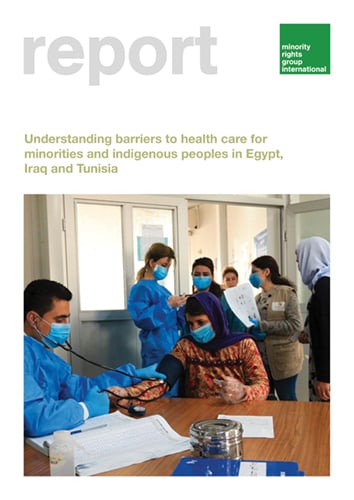
Understanding barriers to health care for minorities and indigenous peoples in Egypt, Iraq and Tunisia
Minorities and indigenous peoples are among the most marginalized in terms of access to social and economic rights, and this is especially the case with health care. This report uses the availability, affordability, accessibility, adequacy and appropriateness framework to assess health services available to minority and indigenous communities in Egypt, Iraq and Tunisia. It combines research with interviews and focus groups with members of the communities and medical professionals to review the three health care systems. Covering the Coptic minority in Egypt; Yezidis in Sinjar in north-west Iraq; and, in Tunisia, the Black community in Djerba, Gabes and Sfax, the Jewish community in Djerba and the Amazigh community in Tatouine, the report identifies barriers to access to health care in a context of public health systems that have been weakened by Covid-19, as well as poor systems of governance and under-resourcing.